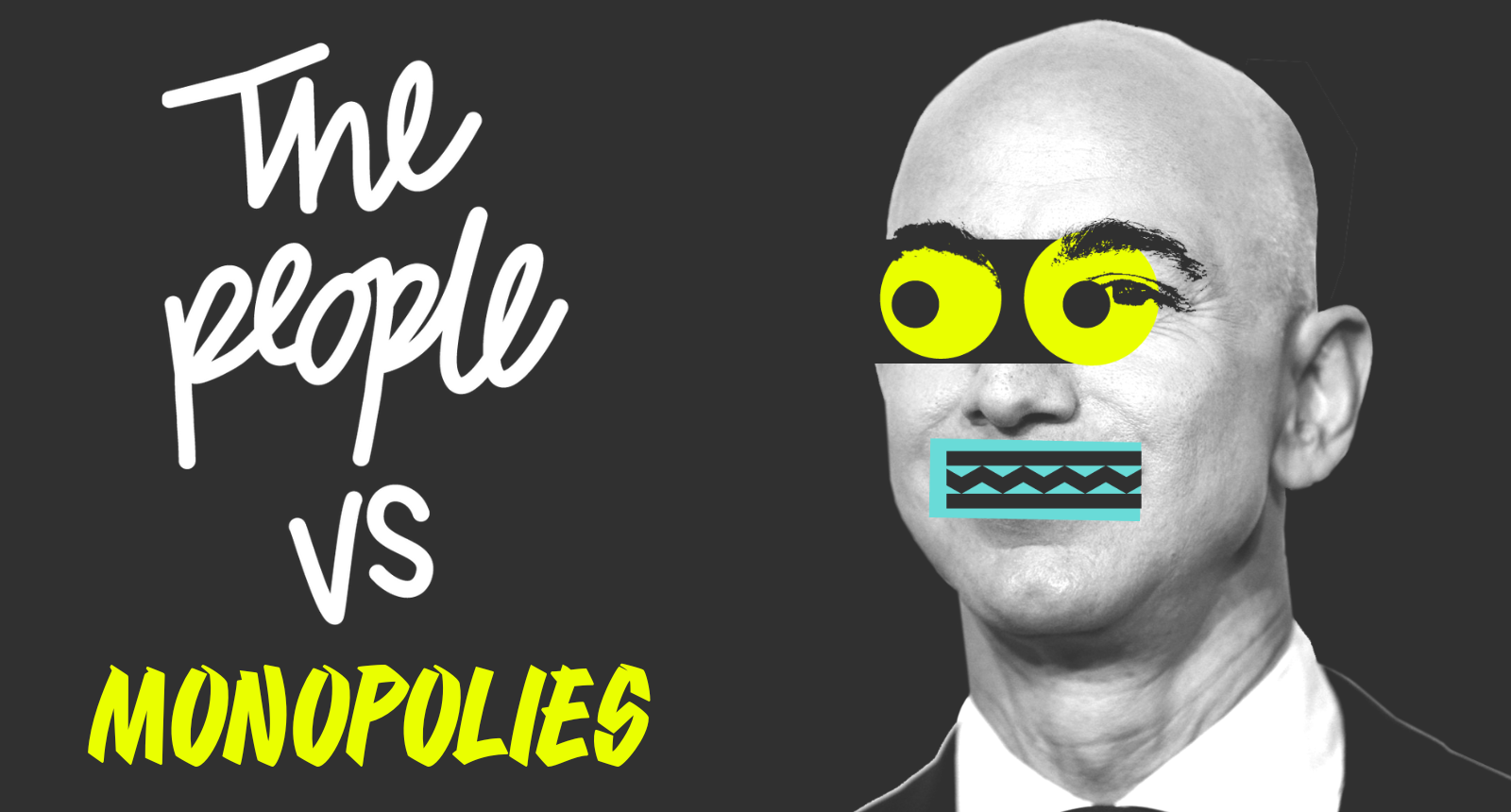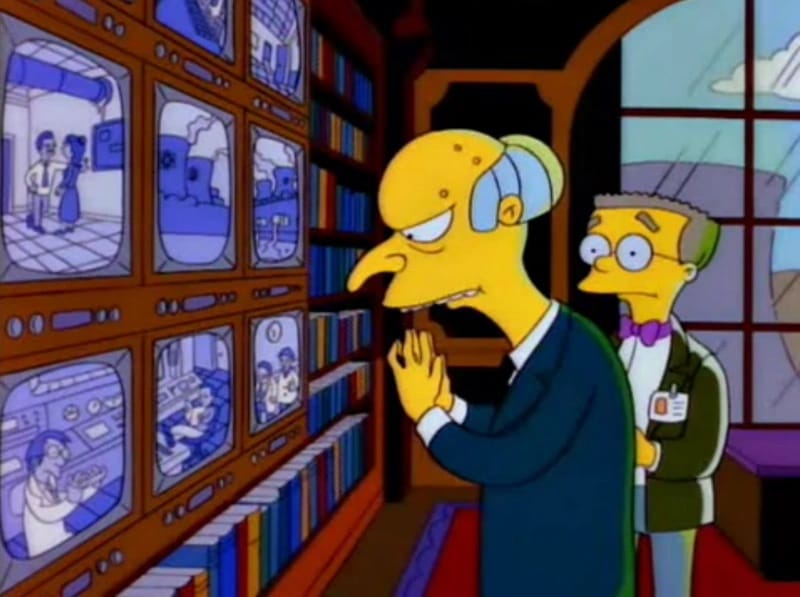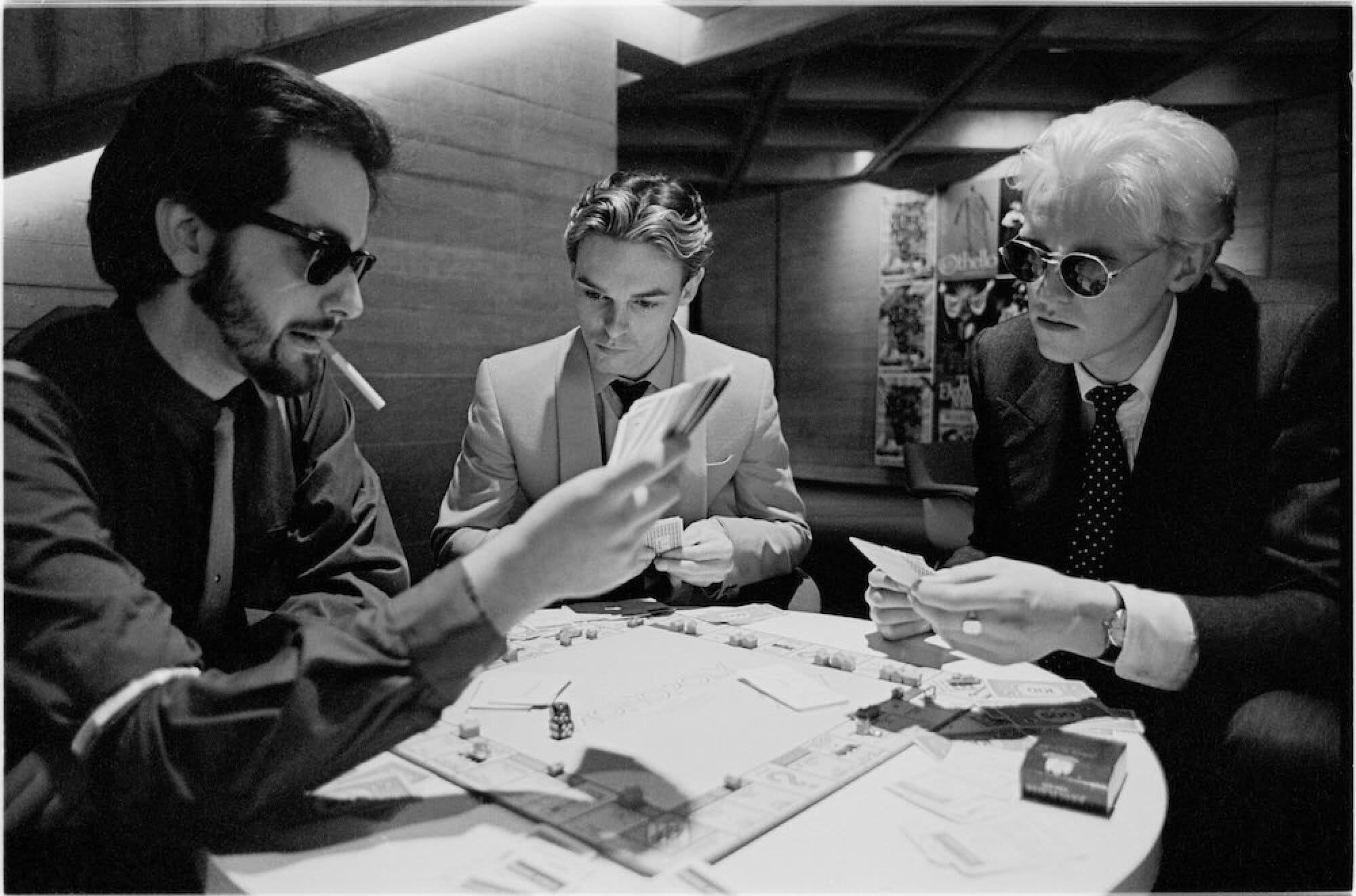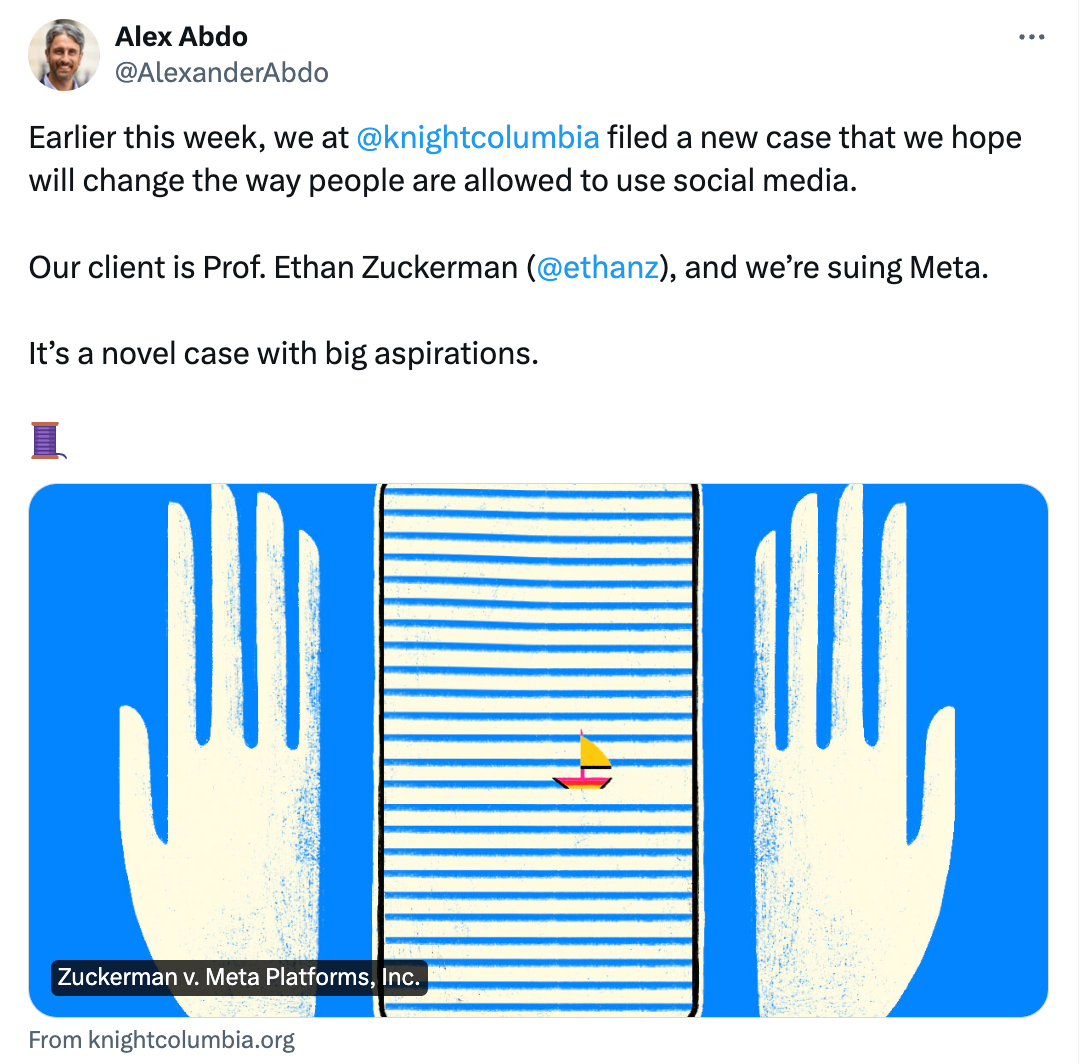The People vs Monopolies
How can we stop a few tech giants from owning everything? 😬

Welcome to the third issue of The People, a bi-weekly newsletter from People vs Big Tech and the Citizens.
Each issue we’re tackling one online topic with the help of guest experts. This week The People is brought to you by me, Mary-Ann Russon, and I’m looking at how Big Tech companies dominate our online world - and the impact of their monopoly power.
This feels hard to believe in 2024, but the internet was originally designed to be free, open and decentralised. Now, the same few big brands are behind many of the services we like to use.
Take Meta, which owns two of the world’s most popular social media platforms Facebook and Instagram, as well as WhatsApp. And Google, the most dominant search engine, owner of Gmail and YouTube, and creator of Android, the biggest operating system for smartphones in the world.
Amazon, the owner of Prime Video, Kindle, Twitch and Ring (yep, the doorbell people) is the largest cloud provider - meaning if their web services have a problem, half the internet goes down,
There’s even a monopoly behind your love life 💔. Match Group owns Match.com, Tinder, OKCupid, Hinge and Plenty of Fish. So, more like just a few fish…

But is it so bad if a big company offers lots of different products and services that we like to use, especially if the services are free? Hey, we all like free things.
The issue is, “free” can be an illusion that disguises the real agenda of the provider, especially when it leads to a market monopoly. This isn’t just some abstract economic term - monopolies directly impact all of us.
For some of these services the price might not break or even dent your bank balance. Instead, the costs are hidden: you might pay with a loss of privacy, choice, or even autonomy over your own political beliefs. Cambridge Analytica’s use of millions of Facebook users' data to create psychological profiles to assist Donald Trump’s 2016 election campaign is case in point.
Described by some researchers as “data-opolies”, these companies harvest all kinds of data (often from seemingly separate services) without disclosing how they are using it to influence us - even down to rigging the price of the product we are looking at. Last year, Uber was accused of charging users more if they have low phone battery following an investigation by Belgian newspaper Dernière Heure.
Because of this, we are likely paying above and beyond with our data, while making Big Tech billions in advertising revenue. The reams of data collected by tech giants also gives them the huge advantage of being able to discern consumer trends before smaller companies, thus quashing innovation.
Many tech experts believe the only way things are going to get better is by ending the Big Tech monopoly. Here’s why:
Monopoly: Not just a game 👾

Monopoly is an iconic board game that gets us all hooked and hungry for power. A Big Tech version would probably be a bit like that too, but we’d be rolling the dice on the “price” (in data or dollars) we pay for services, which products we have access to and their quality - and even the role they play in our democracies.
“At the moment, our entire experience online is contained in these infrastructures they've created,” Tanya O'Carroll, tech policy expert and co-founder of People vs Big Tech told me.
Sure, we have choices on social media. If you don’t like Facebook, you can use Twitter or TikTok, right? Not exactly, according to Tanya.
“It's not a choice to not have Facebook, if all your friends and family and services are on the platform, and if this is where you get information or find community,” she said. Besides, in one way or another all these platforms violate user's rights in the same way. And they are designed to keep it that way.
For instance, British developer Louis Barclay created UnFollow Everything, a free piece of code that enables people to unfriend all their Facebook friends and clear their newsfeeds, with the intent of helping people break social media addictions.
Meta has banned his browser extension and US professor Ethan Zuckerman is now suing the tech giant on Louis’ behalf, demanding that developers be allowed to create free software for consumers to use with social media.

“Facebook can be a private corporation, but because it is the de facto public square for more than a third of the planet, it has to be treated like a public utility,” Tanya stressed.
Governments have begun to fine Big Tech firms. Last year Apple was fined €1.8bn (£1.5bn) by the European Commission for abusing its dominant position in distributing music streaming apps for iPhone and iPad users.
It also fined Google €2.4bn (£2bn) in 2017 for using its search engine to give its own products an illegal advantage over competitors’ products and services. In the US, the Federal trade Commission (FTC) fined Facebook $5bn (£3.8bn) for violating users’ privacy.
Because these companies are so wealthy though, fines don’t have enough impact. Either the tech giants accept they will have to pay and set aside money for potential fines, or in the case of Google, would rather spend years appealing in court to avoid changing their ways. So what do we do about it?
Algorithms for all 😌✌️
Cori Crider is a lawyer and co-founder of Foxglove, a UK-based non-profit that advocates for justice in technology. She told me that “we need to go back to the original understanding of ‘anti-trust’, which is that monopolies are about power, not just about price, and act to reduce that power".
"Breaking up tech giants and preventing powerful companies from controlling new emerging technologies being developed today is the best way to do this," she added.“
"Force these companies to let other services interoperate with them, and wall off dominant parts of the company like cloud or enterprise software, from new emerging areas like artificial intelligence.”
It’s also about re-thinking what we want social media to look like. If these monopolies were broken down, could we see newsfeeds presenting viewpoints from across the political spectrum, rather than just opinions that echo how we already feel?
Could we see non-addictive, educational content for our children? Or content designed to help us fall asleep at night - rather than stay up in anxiety fuelled doom-scrolling loops? Tanya from People vs Big Tech hopes so.
She envisages a world where multiple people and companies are allowed to develop algorithms for social media platforms and we can choose which ones we’d like to curate our online experiences.
Going on a break 💔

There are a bunch of different ways tech experts, policy-makers and digital rights advocates think we can break up or break open Big Tech monopolies. Some - like senator Elizabeth Warren - say the answer is to block or unwind “anti-competitive mergers” so Meta doesn’t own Instagram and WhatsApp too, for example. Others want to prevent self-preferential practices by Big Tech. We saw this just last month when the European Commission announced App Store rules are in breach of the law because they “prevent app developers from freely steering consumers to alternative channels.”
According to Dr Monica Horten, an independent tech and online safety policy advisor, tech giants “make it very awkward” for competing service providers to develop new software, because we are all so dependent on the big platforms.
She wants to see tech giants offering services separately, also known as ‘unbundling’ - for example Microsoft separating Teams from its other products, also in line with European law. Experts also say making devices and software work better with different companies' products - also known as ‘interoperability’ - would help us access a wider variety of apps, software and devices, giving us more choices over how we use the internet.
Basically, whether we’re breaking up, breaking open or going on some other kind of break, ending the Big Tech monopoly isn’t simple. But it’s not impossible either.
Actions you can take ✊
- Escape Big Tech's toxic ecosystems by using alternative services. Switch your default search engine to DuckDuckGo; switch your default browser to Firefox; try out Mastodon instead of Twitter; get your friends on Signal instead of WhatsApp. As more people transfer to alternative services, policymakers will see that we want better choices. Look, it works!
- Dive deeper into the topic: read this article in the Harvard Business Review outlining the harms of the monopolisation of our data, this blog about search engines, and watch these videos of experts examining how tech giants shape public discourse, and to what extent anti-monopoly tools could help counter this power.
- If you’re aged 16-25 and based in Denmark, France, Germany, Ireland, Poland, Spain or the UK, apply to join our youth campaign! You’ll attend a creative boot camp, advocate at the EU and feature in a global documentary. We've extended the deadline for applications until the 24th July, so please share with your networks!
Power to the People 💓
To disrupt tech monopolies, we need government action and regulation. We are actively campaigning in Europe and beyond to achieve this. Sign the People's Declaration and join the growing number of individuals and organisations calling for action to protect our rights, rein in Big Tech and pave the way for a better digital future.
People vs Big Tech is a collective of more than one hundred tech justice organisations around the world. This means we put together each newsletter with the help of the smartest and most respected experts in this field. Email bigtechstories@the-citizens.com if you have an idea for a Big Tech issue you'd like us to cover.

